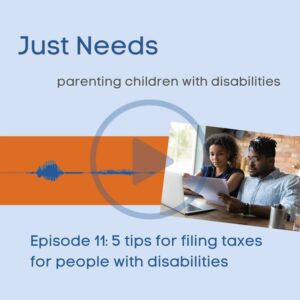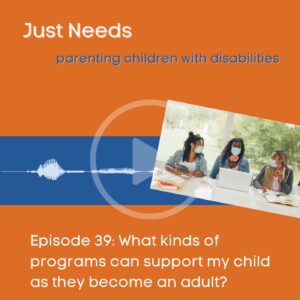Supplemental Security Income: SSI Disability Benefits for Your Child
If you are a parent of a child with a disability, here’s what you need to know about SSI disability benefits.

SSI Disability Benefits: Understanding Eligibility
The Supplemental Security Income (SSI) program provides monthly payments to adults and children living with a disability or blindness, and whose income is below certain financial limits. SSI payments are also made to people aged 65 and older, without disabilities, who meet the financial qualifications.
Qualifying for SSI depends on 3 factors:
- Disability: there are specific criteria, which are different for children and adults
- Income: must be below a certain limit
- Resources: the value of things you own must be below a certain limit (like bank savings or second homes or cars)
The rules for children change at age 18 because a person becomes a legal adult.
Step-by-Step Guides
Applying for SSI Disability Benefits
When applying for SSI disability benefits for your child, be prepared to complete a Child Disability Report, or the Adult Disability Report if your child is over 18, in addition to the SSI application. This report will help the SSA (Social Security Administration) understand your child’s disability.
Be sure to have your child’s medical and school history on hand, as well as the following documents:
- Your child’s birth certificate (original or certified copy)
- Information on the schools your child has attended
- Your child’s medical condition and records
- Proof of income
Learn more about eligibility for SSI disability benefits.
Read more about how to prepare for your child’s disability interview.
The SSI disability benefits available for your child may vary depending on their diagnosis and their age.
If your child has a disability and you think they may qualify for SSI, here are the steps you can take to find out:
- Find out if your child’s disability fits into SSI’s definition of a qualifying disability.
- Call your local Social Security office or the SSA to explore your options.
- Apply for benefits online. Learn more about the application process.
Does your child qualify for SSI but you still need more help? Or your child does not qualify for SSI and you’re not sure where to go from here?
- Determine if you qualify for extra resources such as health insurance, food, and housing.
- Look into different federal, state, and local programs (like ABLE Accounts) that may be available for you and your child.
- Call your local Social Security office or the SSA to explore alternative options.
- Make sure know what to do when you file your taxes so you get all of the deductions your family qualifies for.
Will your child turn 18 soon? Here are some steps to set them up if they qualify SSI disability benefits as adults.
- If your child already gets SSI, review the SSA’s handbook “What You Need To Know About Your Supplemental Security Income (SSI) When You Turn 18”.
- If your child does not qualify for SSI, look into whether they might qualify when they turn 18, since the requirements are different.
Does your child have a disability and you think they may qualify for SSI?
Need help applying for SSI for your child?
Does your child not qualify for SSI? Or they qualify but your family needs more help?
Beneficiary
Someone who is getting a benefit. For example, a person who is getting SSI payments is the beneficiary. This also refers to a person who is named in a will to inherit money or possessions, or the person who “owns” the money in a Special Needs Trust. More about financial benefits.
Guardianship
A legal process where a parent or other adult is appointed to make legal decisions for someone over 18 who has a disability and can’t make their own decisions. “Limited Guardianship” can specify only certain kinds of decisions, or “Full Guardianship” is for all decisions. In Louisiana there are 2 forms of guardianship: continuing tutorship and interdiction. More about guardianship or less restrictive options.
Representative Payee (Rep Payee)
If someone is getting SSI benefits and they are not able to manage their own finances, a Rep Payee is set up to receive their SSI payments and buy the things the person needs. The Rep Payee can set up a joint bank account with the person and manage the money. A Rep Payee is often the person’s parent or other family member. More about Rep Payees for SSI.
Parent Perspectives on SSI Disability Benefits and Other Financial Support
Know that you are not alone in this journey! By hearing from other parents and providers caring for children with disabilities you can learn from other’s experiences and thoughts. Learn how they navigate their own challenges in our webinars, podcasts, and blogs about SSI Disability Benefits
Wondering about options for a child who might qualify for SSI?
Here are some resources to help you out!
Top 10 Tips: Financial Planning for Families of People with Special Needs
The financial planning process for families caring for children or adults with disabilities may seem overwhelming. We have been there both personally and professionally. To make the process easier, we break it down into what we call the Five Factors of Special Needs Financial Planning™: financial, government benefits, legal, family & support, and emotional.Touching on…
Services for children with disabilities (and their families, too)
Looking for services for children with disabilities? Start here to learn about the 3 systems that can support your child and your family.

Need help applying for SSI for your child?
“Wait, are we eligible for that?” Here’s How to Find Out
Last year, I sat next to an older man on a plane. We kept to ourselves for most of the flight, but as we started to make our descent, we picked up easy conversation. It was my first time to Louisiana and I was curious and excited to see a different part of the country.

ABLE Accounts: an important part of financial planning for a child with a disability
Do you know about ABLE Accounts? Learn about this great tool for supporting a disabled child or adult without risking their benefits.

Does your child not qualify for SSI? Or they qualify but your family needs more help?
5 Things to Know Before Filing Taxes for People with Disabilities
With tax season here, we’ve provided 5 things that you should know about the different tax credits, deductions, and liabilities affecting families with children and adults with disabilities.

5 tips for filing taxes for people with disabilities
Nothing’s sure but… well, you know the end of that sentence. If your family includes a child or adult with a disability, here are 5 important things to know before you file your taxes in 2022.Narrated by Christina Kozik; Written by Julie McKinney in consultation with Ken W. Shulman, Day Pitney LLP.

Will your child turn 18 soon?
What kinds of programs can support my child as they become an adult?
It can be scary when your student with a disability transitions to adult life. But there are programs and resources to support them. Learn more.

Frequently Asked Questions about SSI Disability Benefits
Applying for SSI can be overwhelming. Don't worry, we have your back! Here's some of the questions parents ask us most often.
Need more help? Click the button below to chat with an Exceptional Lives expert.
If you have not requested a call from the SSA or have an ongoing issue with the SSA, generally the SSA will only contact you through the mail. The SSA will never threaten you with arrest or legal action. Do not give out any personal information over the phone. If you suspect you’ve been contacted by an SSA scammer, call the Social Security Fraud Hotline at 1-800-269-0271.
Supplemental Security Income (SSI) is a federal government benefit that provides monthly payments to children and adults with disabilities who have low incomes and few resources. Social Security Disability Insurance (SSDI) is a different disability benefit that provides monthly payments, but this one is based on how much you have paid into Social Security through your past jobs. Learn more about the differences between SSI and SSDI on our blog.
SSI will consider your entire household’s income along with resources. Learn more about what the SSA considers as income and resources.
Income includes earnings, Social Security checks, pensions, and non-cash items such as food, clothing, or shelter. The amount of income a person has each month affects the amount of the SSI payment he or she can receive. Learn more about what the SSA considers as income and resources.
The SSA has an online search tool to look up your local SSA offices by zip code. Click here to find your local office!
SSI is also available to children and adults under 65 who have a disability and meet certain income guidelines. You can learn more about whether your child qualifies for SSI here.
This really depends on your family situation and needs. The income requirements are different for children and for adults 18 and over. If you apply for your child but they don’t qualify because of your family’s income and resources, it may be worth applying again when your child turns 18. Read about how the rules change when a person turns 18.
Your child or your family may still qualify for other benefits, including housing, health insurance, or food support. Read more about these benefits here.
To qualify for SSI, your countable resources must not be worth more than $2,000. But the Social Security Administration allows you to transfer money to specific kinds of accounts or to “spend down” the extra resources. Learn more about your options.
Your Louisiana Healthcare Connections benefits do not change if you receive SSI or SSDI. Learn more about this at Louisiana Health Connect.
Your MassHealth benefits do not change if you get SSI or SSDI. However, you will need to tell MassHealth about the change. Learn more about this at Mass.gov.















